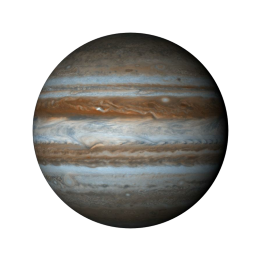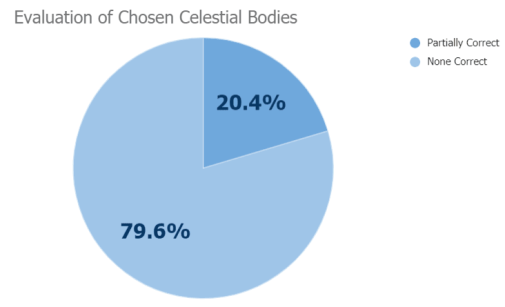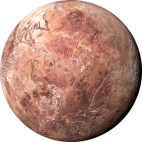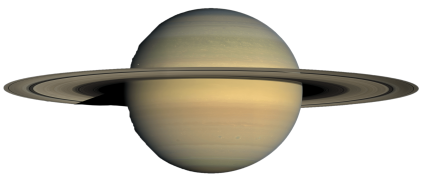This is a write up to a fun little experiment I conducted at my school.
I have always been sceptical of Astrology, and often doubt its influence. Yet, to make any claim in the world of science, justification and evidence is needed to solidify it.
(Small disclaimer: I respect that people find meaning in astrology, and it is a big part in people’s lives. I am not trying to tear down astrology! Naturally, I cannot cover every single aspect of astrology here, this is really just a small summer project I did.)
Astronomy vs Astrology
I get asked this question a lot by non-astronomers. I understand, the names are very similar.

Astronomy is the science of space and celestial bodies. It uses mathematics, physics and chemistry to explain phenomena such as galaxies, orbits, fusion, stars, you name it. It’s one of the oldest known sciences, and splits off into observational astronomy, cosmology, astrophysics, planetary sciences, astrobiology, and many more fields of study.
Astrology is using the position of planets relative to constellations to predict events on Earth. Depending on when you were born, you will have a ruling constellation and celestial body which dominates your personality and who you are compatible with. There were originally 13 zodiacs, but modern astrology has abandoned Ophiuchus (my one!)
The Experiment
It’s really just a small-scale survey of people in my year group, but it was a fun idea!
Over the summer, I sent out 12 zodiac-specific surveys to people in my year. The survey included questions on a given monthly horoscope (an accuracy rating on a scale of 1 to 10, and questions on the horoscope’s vagueness), good and bad personality traits, and on which celestial body stands out most.

They did not know, however, that all the horoscopes were the same. It was Leo’s horoscope. The survey was completed in the summer, so there was minimal communication between participants.
Hypothesis
All star signs except Leo should not find the horoscope accurate to them. It is expected that the average accuracy rating will be quite low, but the Leos’ answers should be highest. Specifically, Leo’s should be the only outlier in the data (outliers will be calculated using standard deviations)
If this is not the case, it implies that there is no evidence to suggest that the horoscopes are accurate to each zodiac.
The specific personality traits should be correct most of the time. For example, Capricorns are noted to be responsible so if astrology is reliable, most Capricorn participants should agree with this statement.
If this is not the case, it implies that astrology has no connection to personality traits.

As for the celestial bodies, all zodiacs should be able to correctly identify all of their ruling planets/stars/moons. Unfortunately, I cannot really do much stats on this or set a significance level because the data can’t follow any distribution.
If very few people can correctly identify their ruling celestial body, this would imply that there is no connection between people and specific celestial objects.
The Results
The Horoscope
Of all that responded, the average accuracy rating for the horoscope was 4.2. There were divides in Virgo (50% voted 4 and 50% voted 8) and Scorpio (a third voted 8, whilst the rest voted below 5).

The results gave a standard deviation of 2.1, meaning any averages above 8.4 would be classed as outliers. If the hypothesis is true, Leo should be the only outlier.
There was one outlier, Gemini.
Gemini rated the horoscope with highest accuracy at a clear average of 9. The lowest average rating was 2.5 from Aries. Leo was not an outlier.
Verdict: There is insufficient evidence to suggest that the horoscopes are accurate to each zodiac, and Geminis are better off with Leo’s horoscope!
Personality Traits
Horoscope accuracy for:
Good Personality Traits: 52%
Bad Personality Traits: 51%
The Verdict: The zodiac based personality traits were accurate slightly over half the time, which I did not expect. It’s not exactly sufficient enough to make a conclusion on these numbers but if you want to get a good idea of what someone’s like, zodiac based traits aren’t a bad way to go.
Celestial Bodies
Only 20.4% of participants could identify one ruling celestial body. The 20.4% includes those who guessed all correctly and partially correctly. Exactly 0% of individuals could guess all celestial bodies correctly.

Interestingly, the most chosen planets and objects were the Sun, Neptune, and the Moon. No participant chose Mercury, Venus, or Earth.
Verdict: There is no evidence to suggest a connection between people and specific celestial objects.
To conclude…

It seems horoscopes aren’t reliable ways to predict how the month goes, and celestial bodies have practically no connection to the participants.
If I had more than 40 participants, I would have more reliable results especially with the personality traits.
This little experiment was quite fun, and I enjoyed doing it. Ideally, I would have completed the experiment on a larger scale, however my year group has 65 pupils in total, and the other year group are beyond negotiation.
I hope you enjoyed reading this, and feel free to add your thoughts below. Once again, I am in no way an astrology-hater. I understand that astrology can be a major part in people’s lives, and I respect that. The purpose of the survey was just to have some fun!

On the topic of constellations, I think we might have a little constellation quiz soon!
This is a wonderful experiment! Historically speaking, there is some connection between astronomy and astrology. A lot of early astronomers like Copernicus and Kepler were also astrologers. They thought if they could more accurately calculate the movements of the planets, then they’d be better at predicting people’s astrological fortunes.
LikeLiked by 1 person
I do wonder how the connection between planets and fate came about, as they seem so vastly different and unconnected. Was it from the fact that civilisations believed the planets were Gods and divine beings? I wouldn’t be surprised if that were the case!
LikeLiked by 1 person
That makes sense to me.
LikeLiked by 1 person